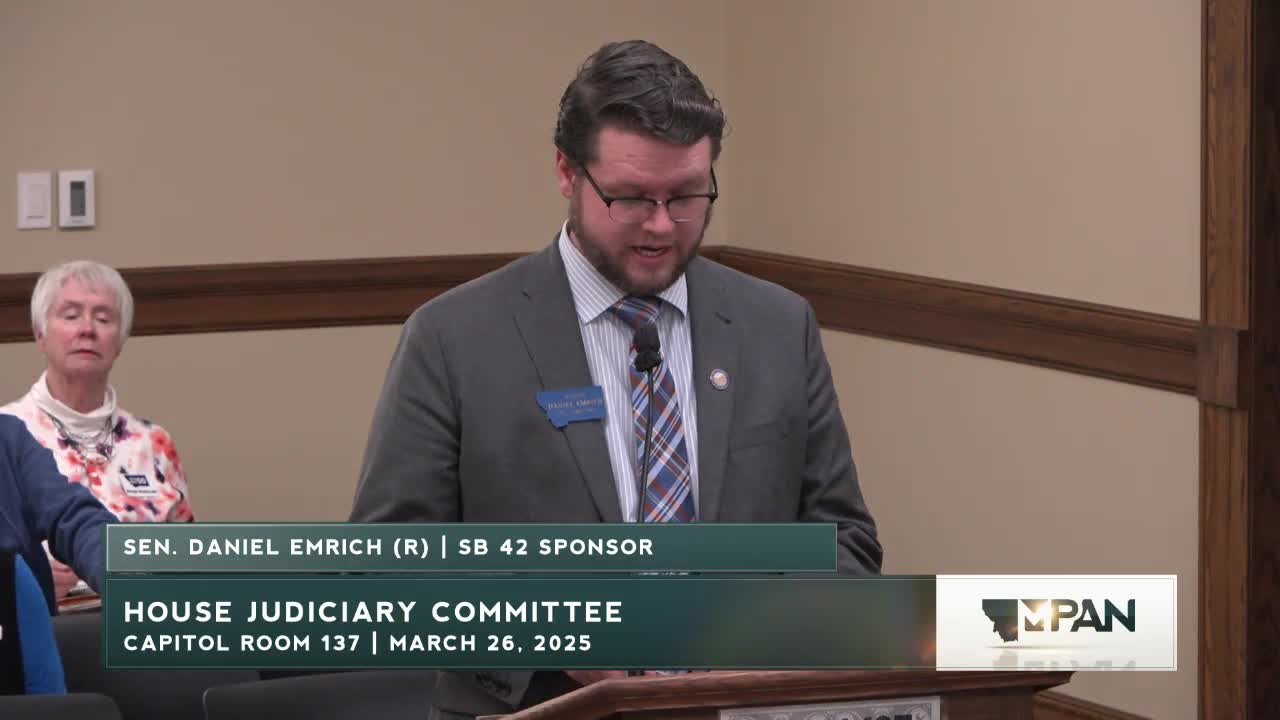Bill to allow party labels on judicial ballots draws sharp opposition and praise
Get AI-powered insights, summaries, and transcripts
Subscribe
Summary
Senate Bill 42, which would allow judicial candidates to appear with party labels on Montana ballots, produced a broad hearing with the lieutenant governor and multiple legal organizations offering sharply contrasting views.
Senate Bill 42, which would allow judicial candidates to run with party labels in Montana, prompted a lengthy hearing with divergent testimony from public officials, legal organizations and hundreds of public witnesses.
Sponsor Sen. Daniel Emrich said the measure is “a voter‑education bill” and that partisan labels would give Montana voters “information to make an informed decision.” Lieutenant Governor Kristin Juras, speaking for the governor’s office, told the committee party affiliation is already hidden and party groups already intervene; she said partisan labels would “bring judicial candidates out of the darkness and into the light.”
Proponents included conservative groups and individuals who argued party markers are a transparent way for voters to learn judicial candidates’ viewpoints. Henry Kriegel of Americans for Prosperity said the change “leads to greater transparency and more voter information.” Several proponents pointed to other states that use partisan judicial elections.
Opponents were numerous and included the State Bar of Montana, the Montana Judges Association, the Montana Trial Lawyers Association, Friends of the Third Branch and retired delegates to the 1972 constitutional convention. State Bar and legal‑ethics witnesses warned the change would reduce public confidence in judicial impartiality, invite partisan fundraising and discourage qualified candidates.
Bruce Spencer representing the State Bar told the committee polls show sizable majorities of Montanans prefer nonpartisan judicial elections. He also cited research from partisan‑election states that partisan labels do not improve voter knowledge of qualifications. Noreen Freistadt, a former legislative and civic volunteer, said “judges should not be influenced by political contributions and partisan pressures.”
Several committee members asked whether party labels would create recusal pressure or invite venue shopping. Supporters argued judges already have personal political histories and voters can access party affiliation through public records; opponents said formalizing labels institutionalizes partisan influence.
The hearing drew many individual opponents who said partisan judicial contests would empower special interests and deepen polarization. Former constitutional convention delegates told the committee Montana deliberately adopted nonpartisan judicial elections in the 1930s and preserved nonpartisanship in 1972; they urged lawmakers to maintain the long‑standing approach.
The committee closed the hearing without taking immediate action.
